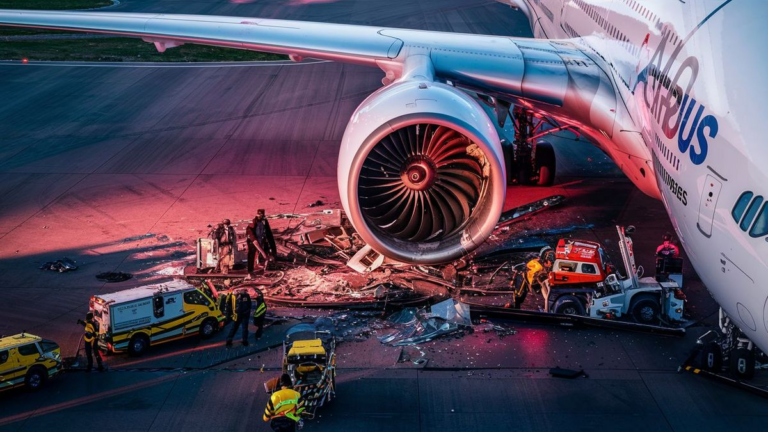In recent aviation news, the Airbus A380 has faced an unprecedented engine failure incident in Singapore, sending shockwaves through the aviation industry. This unforeseen event has raised concerns and questions about the safety and reliability of one of the world’s largest passenger aircraft.
The Incident
The Airbus A380 engine failure in Singapore occurred during a routine flight, prompting an emergency landing. Passengers and crew members onboard experienced a tense situation as the aircraft’s engine malfunctioned, leading to a critical decision-making process for the flight crew.
Immediate Response
The aviation authorities in Singapore swiftly responded to the incident, launching an investigation to determine the root cause of the engine failure. This incident has prompted a comprehensive review of safety protocols and procedures for the Airbus A380 fleet.
Technical Analysis
Engine failures are rare but serious occurrences in aviation. The Airbus A380, known for its four-engine configuration, demands meticulous technical analysis to understand the specific challenges faced by its engines. Aviation experts are closely examining the engine components, maintenance records, and manufacturing processes to identify any potential systemic issues.
Impact on Airbus
This incident has significant implications for Airbus, the European aerospace corporation responsible for the A380. The company is under scrutiny to address concerns regarding the reliability of its flagship aircraft. Stakeholders, including airlines and passengers, are keenly observing how Airbus responds to this critical situation.
Safety Measures
In response to the incident, Airbus has implemented immediate safety measures for the A380 fleet. These measures include enhanced engine inspections, software upgrades, and additional training for flight crews. The company is working collaboratively with aviation authorities and airlines to ensure the continued safety of the Airbus A380 aircraft.
Global Ramifications
The Airbus A380 engine failure in Singapore has reverberated globally, prompting international aviation organizations and regulatory bodies to reevaluate safety standards for large passenger aircraft. This incident serves as a wake-up call for the industry to prioritize and enhance safety protocols across all aspects of aviation operations.
Conclusion
The Airbus A380 engine failure in Singapore is a pivotal moment for the aviation industry. As investigations unfold and safety measures are implemented, it is crucial for Airbus to transparently address concerns and demonstrate a commitment to the safety of its aircraft. The incident underscores the importance of continuous improvement in aviation safety standards to ensure the well-being of passengers and the trust of the global aviation community.
See also:






